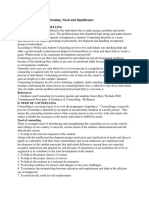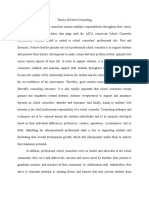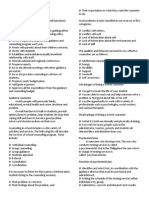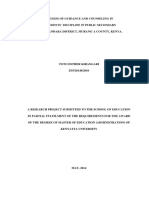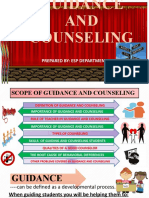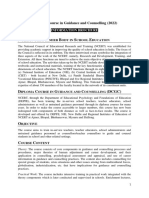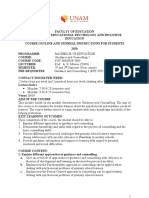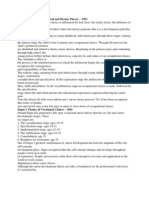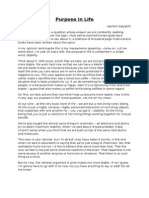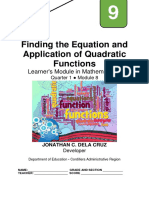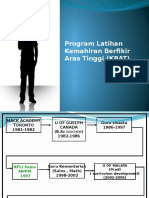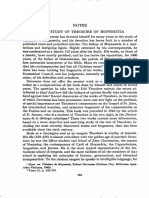0% found this document useful (0 votes)
163 views5 pagesNotes Guidance
The document discusses the role and importance of guidance and counseling in different settings such as schools, communities, hospitals, and industries. It outlines the foundations, principles, aims and challenges of guidance and counseling. School counselors play important roles like helping students become successful, addressing personal issues, and transitioning services online during the pandemic.
Uploaded by
Maria Angelica CastilloteCopyright
© © All Rights Reserved
We take content rights seriously. If you suspect this is your content, claim it here.
Available Formats
Download as PDF, TXT or read online on Scribd
0% found this document useful (0 votes)
163 views5 pagesNotes Guidance
The document discusses the role and importance of guidance and counseling in different settings such as schools, communities, hospitals, and industries. It outlines the foundations, principles, aims and challenges of guidance and counseling. School counselors play important roles like helping students become successful, addressing personal issues, and transitioning services online during the pandemic.
Uploaded by
Maria Angelica CastilloteCopyright
© © All Rights Reserved
We take content rights seriously. If you suspect this is your content, claim it here.
Available Formats
Download as PDF, TXT or read online on Scribd
/ 5





